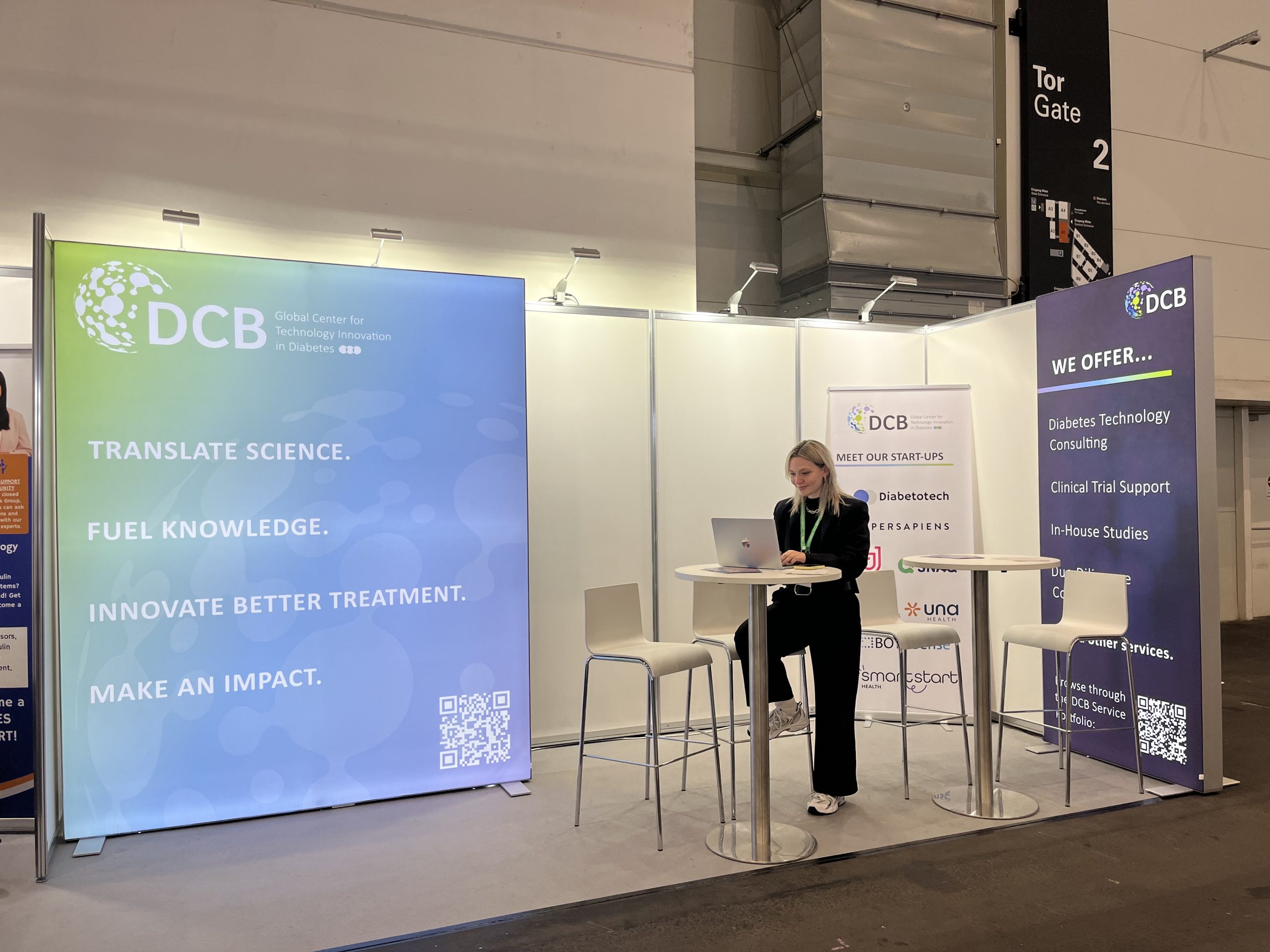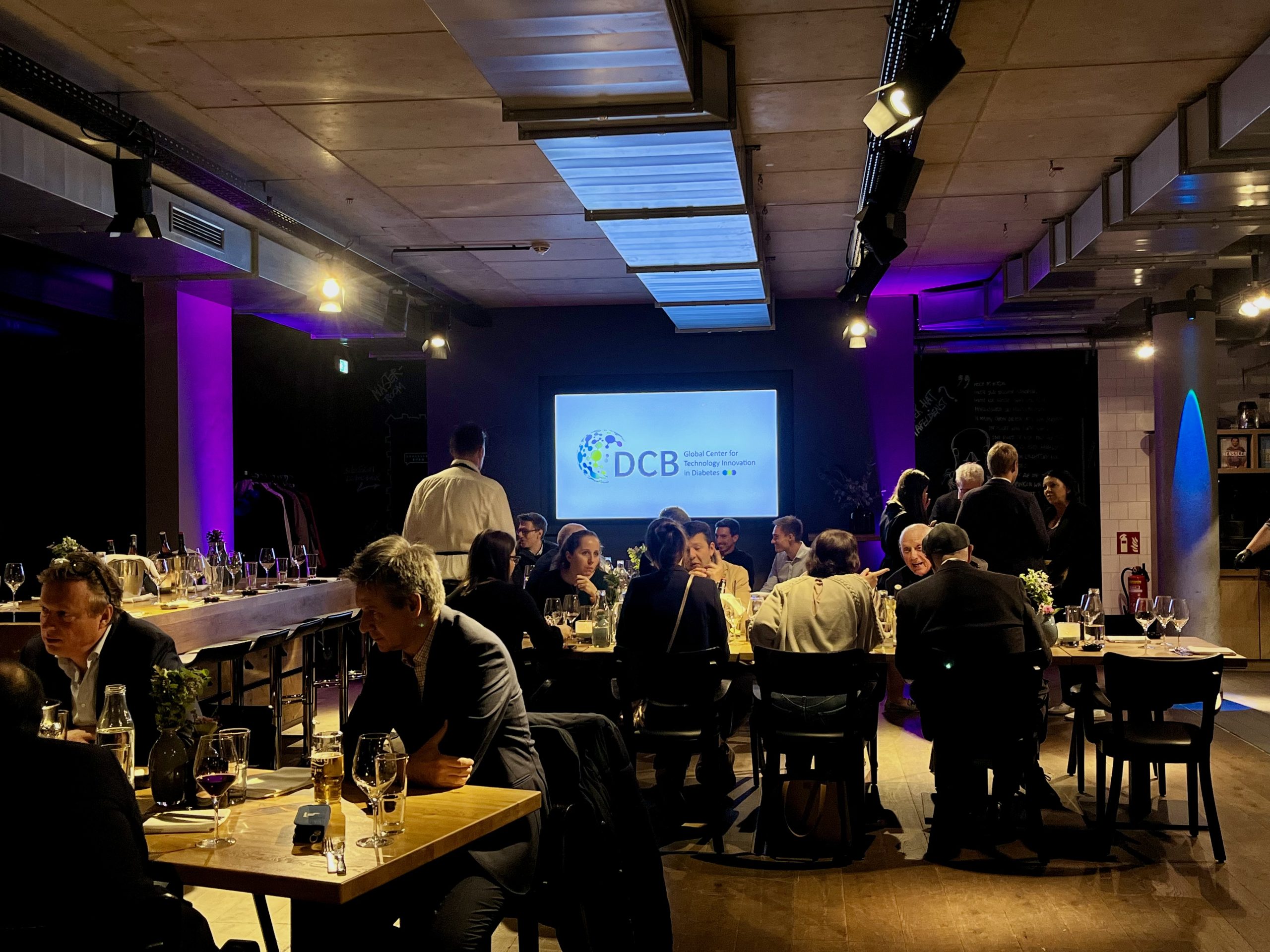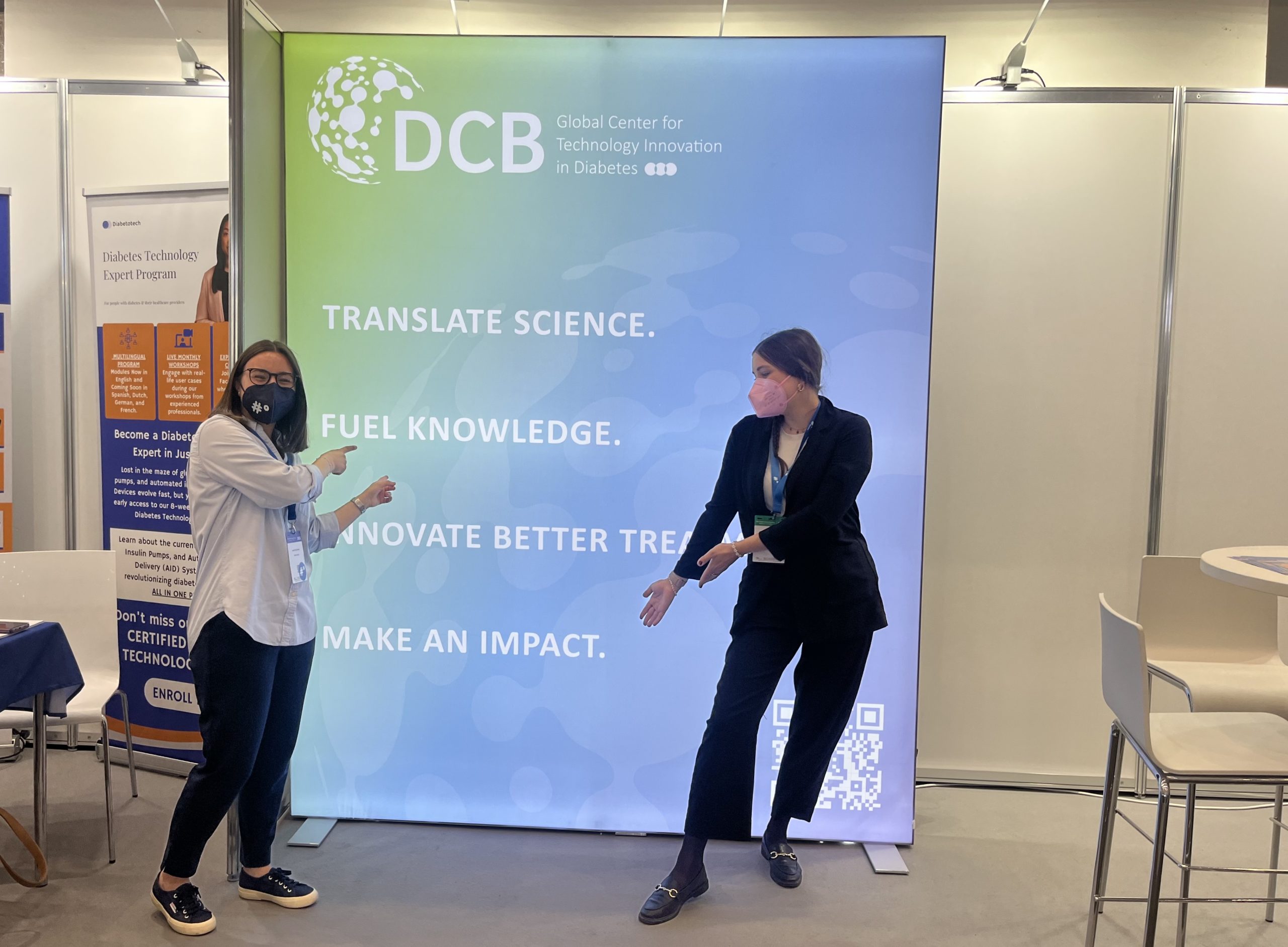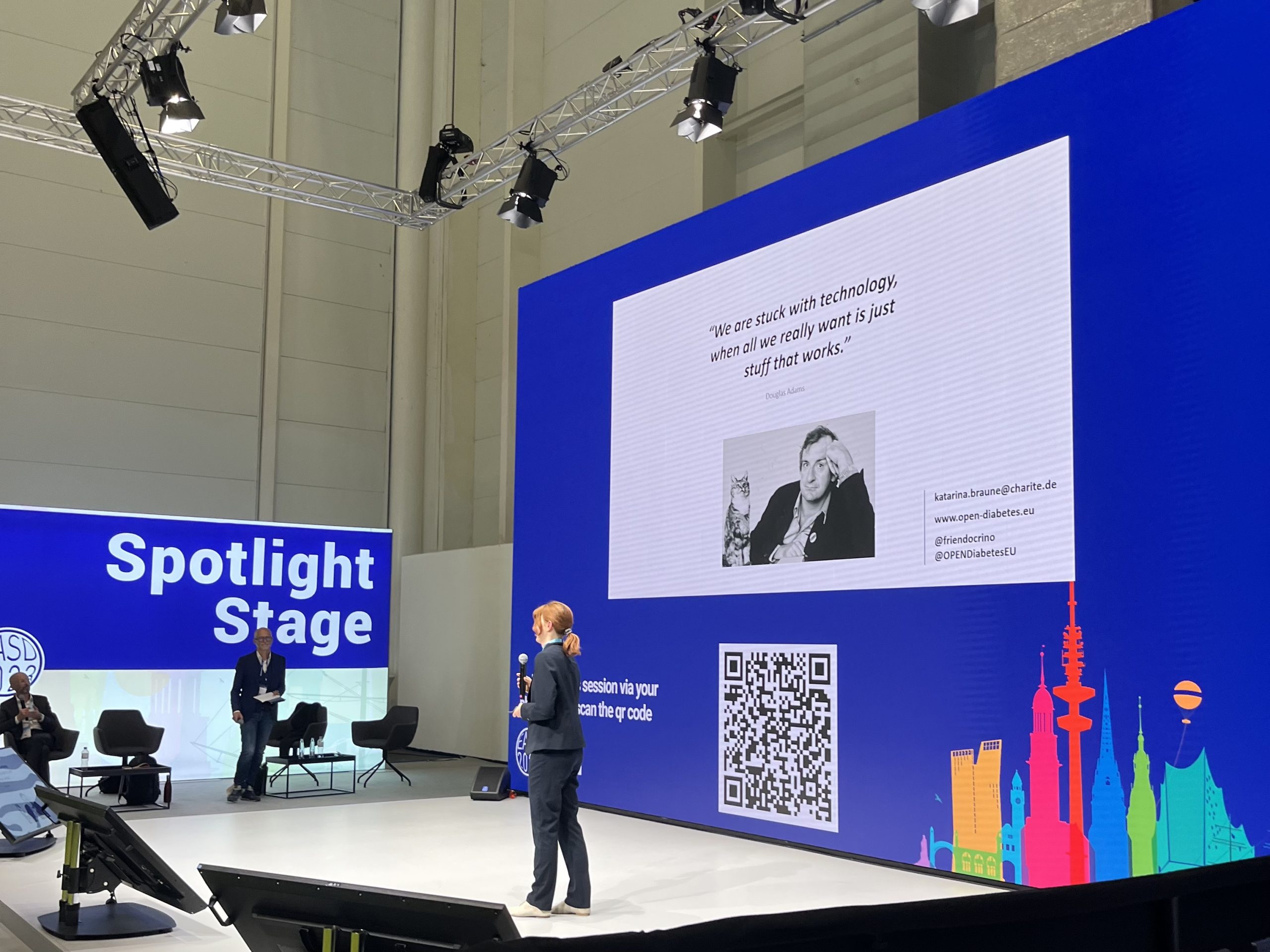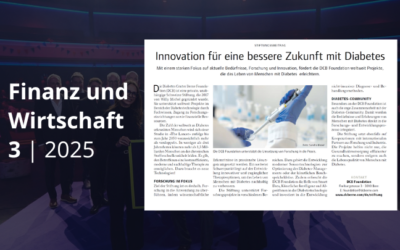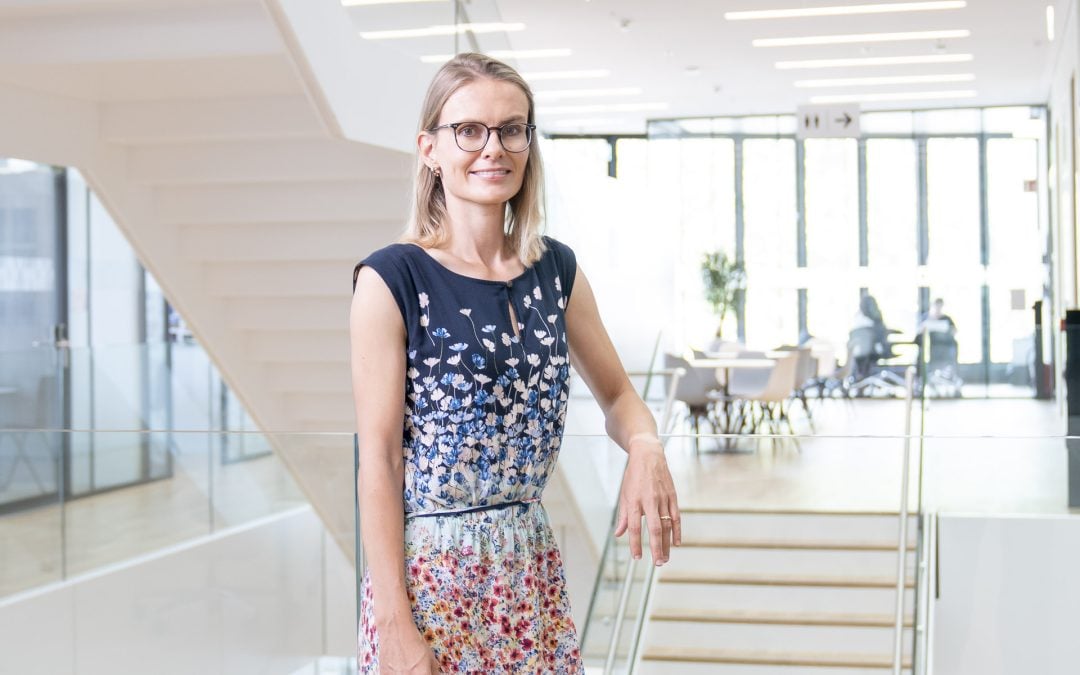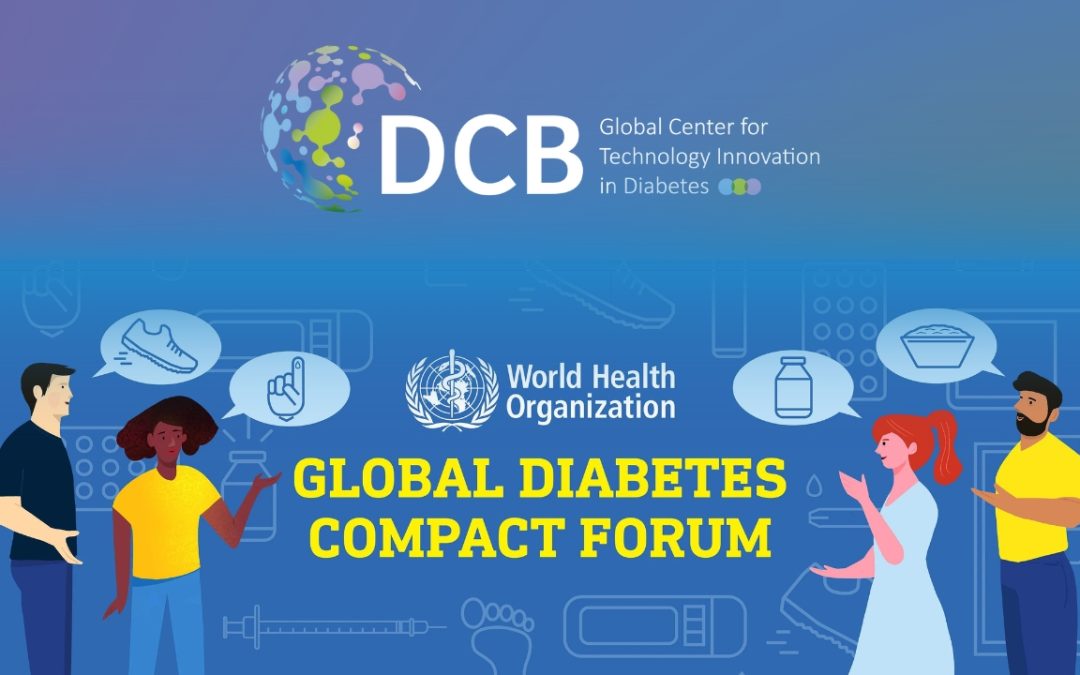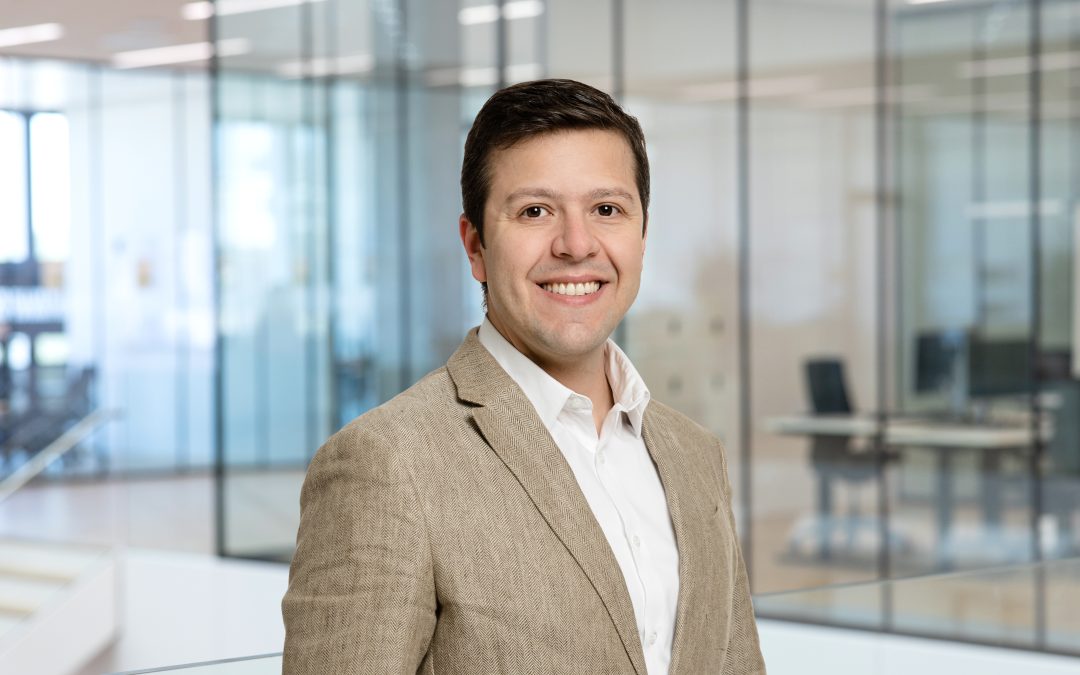Dear Community, We are thrilled to present you with the next episode of our series “INSIDE DCB” – this time, with an...
DCB Newsletter #13/23: INSIDE DCB – Interview with Maria Luisa Balmer
DCB Newsletter #13/23: INSIDE DCB – Interview with Maria Luisa Balmer
Dear Community,
we are thrilled to present you with the next episode of our series “INSIDE DCB” – this time, with an interview with Maria Luisa Balmer, who was just recently awarded with the Marie Heim-Vögtlin Prize. Enjoy the read!

“We are laying the foundation for innovative therapies in diabetes.”
Maria Luisa Balmer has been an assistant professor at the University of Bern and University Hospital of Bern and at the DCB (Diabetes Center Berne) since 2021. Together with her team, she researches the complex pathologically altered bodily functions (pathophysiology) and connections between the intestinal flora, metabolism and inflammation.
Prof. Dr. Balmer, what is your research about?
We want to understand in more detail how the gut microbiota contributes to people becoming obese, or not. The gut microbiota refers to a group of tiny organisms, mainly bacteria, that live in our gut and play an important role in digestion and health. We are interested in the following questions: Which bacteria are beneficial? Which ones are more likely to contribute to the development of obesity (severe overweight, from body mass index 30) and the associated complications such as diabetes or liver disease? And why is this so? Are there certain metabolic products with which the intestinal bacteria influence our metabolism? These are all questions that occupy us in the team and which we approach in very different ways.
What motivates you to work in the field of obesity and diabetes?
Obesity and type 2 diabetes have become a pandemic that is spreading ever faster. Whereas in the past it was mainly the industrialised nations that were affected, today it is also affecting countries that previously had to struggle with the opposite, namely malnutrition and underweight. I am also concerned that more and more children and adolescents are affected by obesity. Despite many efforts in the area of prevention and therapy, there are more and more overweight people, with the corresponding health consequences.
What is your biggest challenge as a professor?
As a researcher, doctor and mother of two children, my everyday life is incredibly varied, diverse and occasionally a little chaotic. I find the balancing act between all my different activities very challenging, but at the same time enriching. The biggest challenge is probably not to miss out myself.
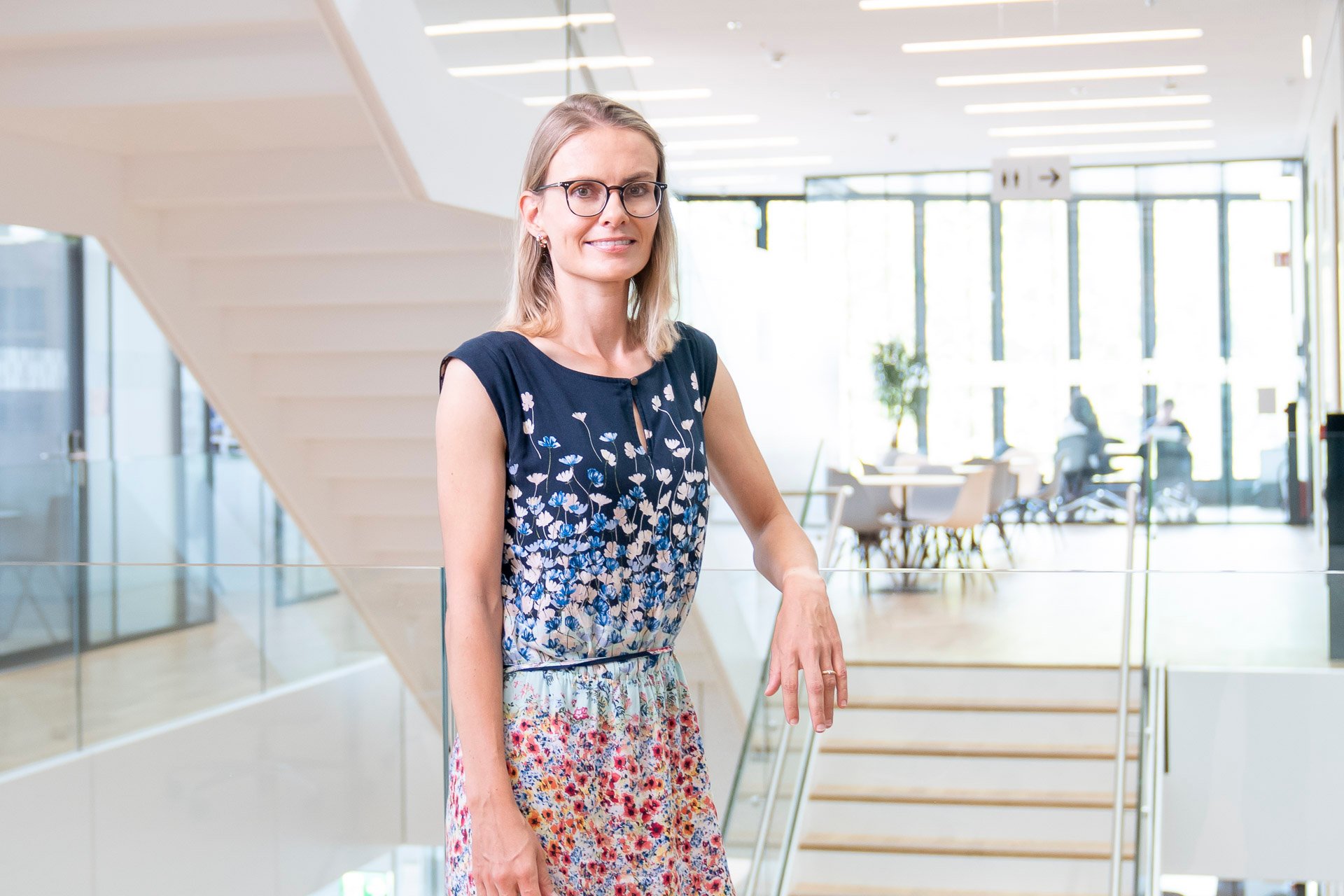
Prof. Dr. Maria Luisa Balmer. Photo: Sina Lou Ravasio
What goals do you want to achieve with your team and your laboratory, the TrIm-Lab (Translational Immunometabolism Lab)?
My goal with my research is to contribute to a better understanding of the mechanistic connections between the gut microbiota and the development of obesity and metabolic complications, and thus to gain new approaches to prevention and therapy. At the same time, it is important to me to be a role model for the next generation of young scientists and to show that becoming a professor is a realistic goal, even for people who have other priorities in life, such as a family.
What projects are you currently researching and how can they make life easier for people with diabetes?
Our research is incredibly broad – from mouse experiments to clinical trials. For example, we work with mice in which we can precisely control the composition of the intestinal bacteria and thus find out which bacteria contribute to the development of obesity. On the other hand, we are currently running a clinical trial called FibreGum with obese children and adolescents, in which we are testing a special chewing gum that contains dietary fibres. We hope that this will have a favourable influence on the composition of the intestinal microbiota and that we will be able to support the children in losing weight in a low-threshold way.
How do you work with the DCB?
My research laboratory and my office are located at the DCB and I very much appreciate the fruitful collaboration. In addition to the infrastructure, the DCB also actively supports us in conducting clinical trials. The familiar and friendly environment is inspiring and a prerequisite for successful research.
Where do you hope your field of research will be in 5-10 years? What is your vision?
I hope that we will understand more precisely how bacterial metabolism integrates with human metabolism and that this knowledge will benefit our patients in a personalised form. My vision is to fight diseases like obesity and diabetes, not only in the rich industrialised nations, but worldwide.
You recently received the Marie Heim-Vöglin Prize, awarded by the Swiss National Science Foundation (SNSF). What pleased you most about this award?
For me, this prize is primarily a huge recognition, which of course makes me incredibly happy. It is wonderful that my research has met with such broad interest and that it has now found its way into the public eye through this prize. The response has been incredible and has touched me very much. I hope that this will motivate many young researchers to continue on their path. I will also continue my efforts to contribute to the fight against diseases such as obesity and diabetes.
About Maria Balmer
Maria Luisa Balmer is SNSF professor and research group leader at the University and Inselspital Bern. With her team at the DCB, she researches the connection between the microbiota, metabolism and the immune system in the context of obesity and diabetes. She is a specialist in general internal medicine and works in the osteometabolic consultation at the University Clinic for Endocrinology and Diabetology in Bern. Her goal is to fundamentally research the mechanisms and consequences of obesity and diabetes and thereby lay the foundation for innovative therapies. In addition, Maria Luisa Balmer is the winner of the Marie Heim-Vögtlin Prize 2023, awarded by the Swiss National Science Foundation (SNSF) for her research on intestinal bacteria and their role in the development of diabetes and morbid obesity.
Thanks so much for reading and we’ll provide you with the next episode of this series soon!
This edition was authored by Sunjoy Mathieu, Communication Manager at DCB.
This post was previously published in Linkedin. Click here to see the original publication.
More recent news
DCB Newsletter #1/25: INSIDE DCB – Interview with Lisa Koch
DCB Newsletter #5/24: INSIDE DCB – Our Milestones in 2024
Dear DCB community – as we approach the end of this year, we want to take the opportunity to look back on our team’s...
DCB Newsletter #4/24: IT’S A WRAP! A Recap of the 2024 DCB Open Innovation Challenge
Dear community – long time no see! At the height of Diabetes Awareness Month Novemver, we are happy to now provide you...


DCB Research AG
Freiburgstrasse 3
3010 Bern
Switzerland
